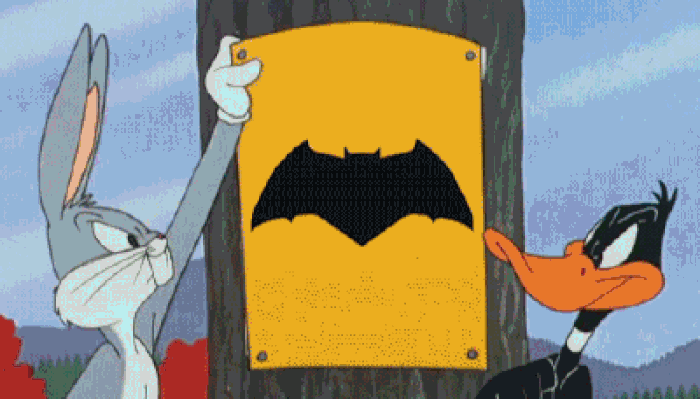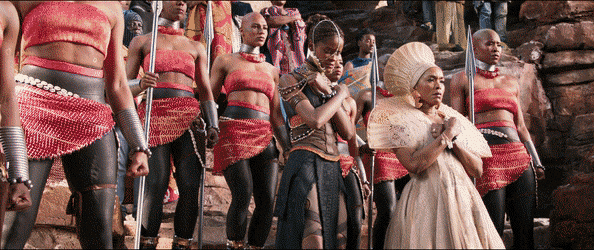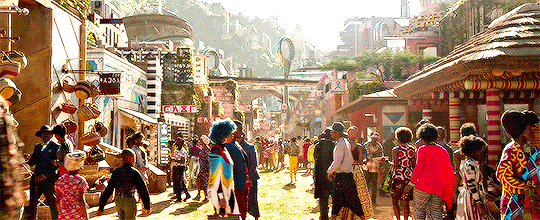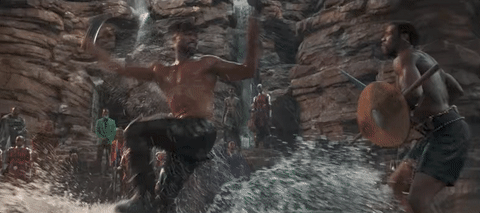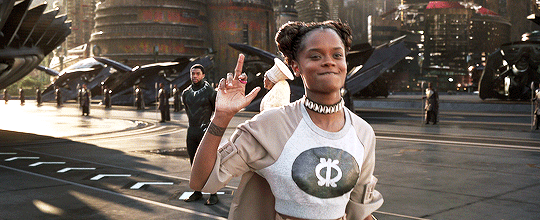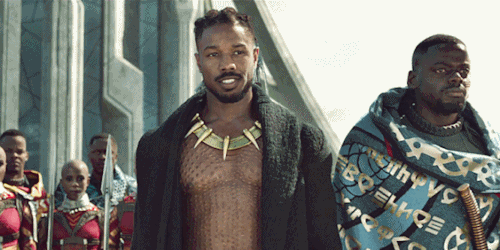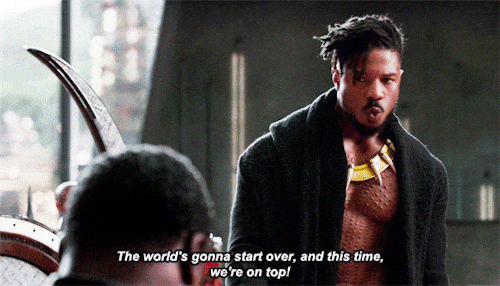Black Panther
[Estimated reading time: 11 minutes]
People…I’m not a Marvel fan. With the exception of Deadpool, I’ve not read any of their comics. This isn’t because of some fundamental dislike of the material, but simply because I only have enough time in my life to stay up to date on one comics universe, and that’s going to be the universe that has Wonder Woman in it.
Despite my apathy towards Marvel content, I have made a point of watching all the MCU films. Mostly I find them to be ‘okay’. They have massive budgets, they’re made by Disney, and they star all of the hottest talent available - it would be pretty hard for them to be terrible films (although not impossible, looking at you Thor 2). But when I heard about plans to introduce Black Panther to the MCU, I was genuinely excited. Stan Lee, had been a passionate civil rights supporter since way back in the early days of Marvel, but the cinematic universe hadn’t really reflected those values. Would this be their chance to make up for lost time?
When Jack Kirby was first writing Black Panther, his editors approached him and said that he needed to include more white people in the stories. The next issue Black Panther fought the KKK.
I’ve thought of this anecdote a lot in the days leading up to the film’s release, with news of angry white boys allegedly complaining about the lack of “white representation” in the film.
Black Panther has much in common with the recent Wonder Woman film. Viewing it serves as a reminder of how little representation we actually get to see in most films. With Wonder Woman the first act was populated entirely by women and served to remind us how often we see entire films with all male casts, but how rarely we see the reverse. Black Panther does so much more than this though. It’s not just a reminder of representation, it is a breathtaking love letter to African culture and black beauty.
Some critics have questioned why we’re placing so much importance on what is essentially a ‘superhero’ movie. It’s a valid criticism if you consider how many critics would have spent equal time reviewing something like, say, Die Hard or equivalent genres from before the Age of Marvel. But Black Panther isn’t just a superhero movie. It’s an Afrofuturism movie. Without the weight of the comic book fandom behind it, it’s almost inconceivable that a studio like Disney would ever make a big budget science-fiction movie with an almost entirely black cast. We can place so much importance on this move because it’s a superhero movie. It is bringing a wonderful new genre to the attention of the masses.
Black Panther brings us to Wakanda; a frisson inducing world built from the ground up to demonstrate what Africa could have been were it not for colonisation. Everything from the architecture to the technology, the clothing and the culture has been imagined and developed with African and black culture at its roots.
The production team are the true geniuses behind these elements. Production designer Hannah Beachler (Moonlight, Beyoncé’s Lemonade) and costume designer Ruth Carter (Amistad, Selma) worked together to imagine an African nation free from European influence. The unique styles of the five tribes of Wakanda are based on different African nations and their cultural heritage. The architecture blends technology and traditional African hut designs in a way that becomes modern, without becoming synonymous with the major cities we’re used to.
Even the fighting styles in the film borrow from multiple African cultures, including the use of spears, shields and short stick fighting. This not only adds to the richness of the film’s world, but also adds another layer of immersion when watching. When we watch the Wakandans fight, when we listen to their African accented English, the suspension of disbelief becomes that much more inescapable.
The plot of the film is unique, in that it doesn’t feature any Western countries. It’s set solely in Wakanda and briefly in South Korea. The storyline itself doesn’t offer many surprises, which is not unusual for a comic book origin film. What it does do in a way that’s remarkable is manage to be incredibly political and relevant without feeling patronising. We are asked as an audience to consider the ethics of a nation as rich as Wakanda remaining neutral in the face of the atrocities that have been committed against black people globally. Characters question whether they should be intervening to provide aid to neighbouring African nations and risk the secrecy that has protected Wakanda for hundreds of years.
The intersection of American and African black culture in the film is dealt with directly and passionately. However the more accessible intersection for many global audiences is that of feminism. Where Wonder Woman was every inch a white feminist movie, Black Panther does so much more for not just black women, but women as a gender. While T’Challa may be king, he is surrounded on every side by truly incredible women. His sister, Shuri (Letitia Wright) is a technological genius that makes Tony Stark look like Steve Rogers trying to use an iPhone. His mother, the elegant and graceful Ramonda (Angela Basset) leads the council of advisors to the king, almost all women. His love interest, Nakia (Lupita Nyong’o) is an accomplished warrior who isn’t afraid to challenge him on his politics. But stealing every scene she’s in is General Okoye (Danai Gurira), who leads the all female army of Dora Milaje.
Where Wonder Woman was a single white woman in a world of men, Black Panther shows us a world of women working together to help a single man. Each of them is a fully developed character with her own motivations, sense of humour and personal style. Nakia is determined to help the African people outside of Wakanda, and challenges T’Challa on why he won’t do the same. Okoye is stoic and serene in equal measure, unflappable and loyal to the Wakandan throne before all else. Shuri is not only a genius, but also a typical little sister, goading her brother with pranks and witty barbs.
There isn’t a stereotyped black female character in the entire film. Anika Reed does a far better job than I could of examining the ways in which Black Panther lifts up black women.
From a feminist perspective, what is equally interesting, is the way that Wakanda itself treats its women. Women can be leaders, regents, guards, advisors and scientists. There is seemingly no limitations set on the women of this African nation. And the only character the film allows to treat a woman with disrespect is Killmonger.
Every interaction he has with a woman makes it clear that he does not see her as his equal, despite his motivations coming from a place of anger at the inequality he has experienced. As a villain, we are meant to hate him, for this and many other reasons. But Michael B. Jordan’s depiction of him is so nuanced, and the character is so well written, that even by the end of the film it’s hard to disagree with his motivations.
The only real white characters in the film are Gollum and Bilbo, whose character names are so forgettable that I’m not even going to bother looking them up. Nakia saves Bilbo at one point and brings him to Shuri who saves his life, which is an incredibly welcome subversion of the white saviour trope, which is made even better when after his recovery he startles Shuri who exclaims “Don’t scare me like that, Coloniser!” The number of times that T’Challa is rescued by the competent women who surround him is uncountable. And while men initiate all of the violence in the film, it is consistently the women who end it and resolve it.
Black Panther is a brilliant film. It’s an excellent superhero movie, an enjoyable action movie, and a wonderful adventure film. The cast is exceptional, many of them being Academy Award nominees and award winners. They throw their heart and souls into their roles and never are you left feeling like they’re phoning it in because it’s a comic book movie. After the release of James Cameron’s Avatar many people who had seen the film reported feeling depressed and even suicidal at the knowledge they could never visit the fictional planet. I have to admit to having a similar feeling after the credits rolled and I realised I was no longer in the world of Wakanda.
As a white Australian woman, it is not my place to make commentary on what this film truly means to black people. I am in the privileged position of not seeing my culture and my heritage represented as criminal, as animalistic, or simply exploited for entertainment. Despite the lack of representation of women on screen, white women still vastly outnumber the roles for black women (and women of colour in general). So if you want to know what Black Panther truly represents, please take the time to read this review by Leonard Pitts Jnr. Because everyone who watches and loves this film has an obligation to understand exactly what it represents and to actively fight for more of the same. The world of cinema is richer for the inclusion of Wakanda and it is my sincerest hope that Black Panther’s success heralds in an era of Afrofuturism.
That is all.
You may go now.

